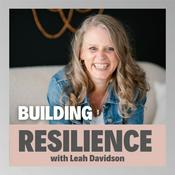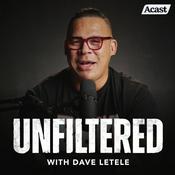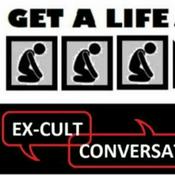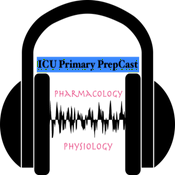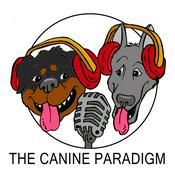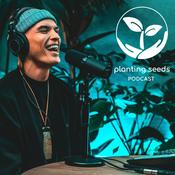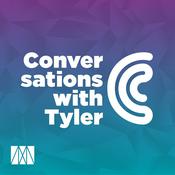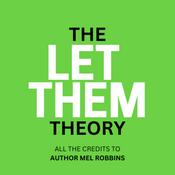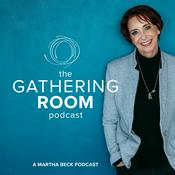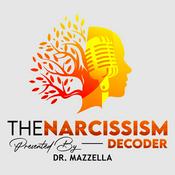270 episodes
- Do you ever feel anxious, irritable, or emotionally overwhelmed and have no idea why? What if the problem isn’t your mindset but your connection to your body?
In this episode of the Building Resilience Podcast, Leah Davidson introduces the hidden sixth sense that shapes every emotional experience you have: interoception. This is your brain’s ability to sense what’s happening inside your body, including your heartbeat, breathing, hunger, tension, and fatigue, and interpret those signals as emotions. When this system works well, you can catch stress early and regulate it. When it doesn’t, you snap, spiral, shut down, or melt down before you even know what happened.
Leah explores how trauma, anxiety, depression, ADHD, and autism all influence interoceptive awareness and why strengthening this skill can dramatically improve emotional regulation, nervous system health, and resilience. The good news? Interoception is trainable. And it begins with simply noticing.
We’ll explore:
• Interoception is your brain’s ability to sense and interpret internal bodily signals.
• Emotions are grounded in physical sensations before they become conscious thoughts.
• Ignoring early body signals often leads to emotional overwhelm or shutdown.
• Trauma can either numb body awareness or make you hypervigilant to sensations.
• Anxiety involves hypersensitivity to internal signals, while depression often involves numbness.
• Many neurodivergent individuals experience interoceptive differences.
• Strengthening interoceptive awareness improves emotional clarity and regulation.
• The first step is not fixing. It is noticing.
LINKS AND RESOURCES:
COMMUNITY
MIDLIFE NERVOUS SYSTEM REWIRE COMMUNITY 👑: A low pressure, fun community for “Queenagers” to regulate, not fix, their midlife nervous systems.
Join here: https://www.skool.com/midlife-nervous-system-rewire/about?ref=06e003b61b8148ebbafd3a067f3cc2e1
MENTAL HEALTH STATIONERY - RESILIENT BRILLIANCE PRODUCTS:
1) RESILIENCE JOURNAL: A guided journal for emotional well-being and nervous system care
Amazon US - https://a.co/d/7DpuyVj
2) MY SAFE SPACE : AFFIRMATION AND JOURNAL PROMPT SET
Amazon US - https://a.co/d/2mANQs4
LET'S STAY CONNECTED
INSTAGRAM: https://www.instagram.com/leahdavidsonlifecoaching/
FACEBOOK: https://www.facebook.com/leahdavidsonlifecoaching
WEBSITE: wwww.leahdavidsonlifecoaching.com
Hosted on Acast. See acast.com/privacy for more information. - Do you have friends you can disappear from for months and return to without guilt, explanation, or effort? The ones who don’t keep score, don’t require performance, and still feel like home when you reconnect?
In this episode, Leah Davidson explores how women’s friendships change in midlife and why connection becomes not just important, but essential. Drawing from decades-long friendships, life transitions, and nervous system science, Leah unpacks why the friendship rules that worked in our twenties and thirties often stop working later on, and why that’s not a failure, but a natural evolution.
You’ll learn how different seasons of life call for different kinds of friendships, why capacity matters more than consistency, and how safety, not frequency, is the foundation of lasting connection. This episode is a powerful reminder that women don’t heal alone. We regulate together, remember ourselves together, and in midlife especially, we need each other.
We’ll explore:
Midlife friendships operate by different rules than earlier seasons of life
Safety, not frequency, is what allows friendships to last over time
Capacity changes across seasons, and that doesn’t mean commitment is lacking
Low-pressure friendships support nervous system regulation, not depletion
Seasonal friendships can be deeply meaningful without needing to last forever
Women are biologically wired to seek connection during stress, not isolation
Joy and connection require intention in midlife, not waiting for life to slow down
Women heal, regulate, and remember who they are through safe relationships
LINKS AND RESOURCES:
COMMUNITY
MIDLIFE NERVOUS SYSTEM REWIRE COMMUNITY 👑: A low pressure, fun community for “Queenagers” to regulate, not fix, their midlife nervous systems.
Join here: https://www.skool.com/midlife-nervous-system-rewire/about?ref=06e003b61b8148ebbafd3a067f3cc2e1
MENTAL HEALTH STATIONERY - RESILIENT BRILLIANCE PRODUCTS:
1) RESILIENCE JOURNAL: A guided journal for emotional well-being and nervous system care
Amazon US - https://a.co/d/7DpuyVj
2) MY SAFE SPACE : AFFIRMATION AND JOURNAL PROMPT SET
Amazon US - https://a.co/d/2mANQs4
LET'S STAY CONNECTED
INSTAGRAM: https://www.instagram.com/leahdavidsonlifecoaching/
FACEBOOK: https://www.facebook.com/leahdavidsonlifecoaching
WEBSITE: wwww.leahdavidsonlifecoaching.com
Hosted on Acast. See acast.com/privacy for more information. - Do you ever sit down to do something important and suddenly find yourself reorganising drawers, researching holidays, or staring at a blank screen while silently asking, “Why can’t I just do this?”
In this episode of the Building Resilience Podcast, Leah Davidson reframes procrastination as a nervous system response, not a motivation problem or personal failing. Rather than being about laziness or lack of discipline, procrastination often shows up when your nervous system senses emotional or social risk and moves into protection.
Through a nervous system informed lens, Leah explores why pushing harder rarely works and what actually helps instead. You will learn how awareness, regulation, and small safe steps can create real momentum without shame or pressure.
We’ll explore:
Procrastination is not a character flaw, it is a nervous system response
When a task feels emotionally risky, the body will choose delay over action
Discipline cannot override a nervous system that does not feel safe
Perfectionism is often protection, not a lack of care or effort
Overthinking is a way the nervous system tries to create certainty
Avoidance is information, not failure
Regulation creates momentum more effectively than pressure
Small starts teach the nervous system that beginning can be safe
LINKS AND RESOURCES:
COMMUNITY
MIDLIFE NERVOUS SYSTEM REWIRE COMMUNITY 👑: A low pressure, fun community for “Queenagers” to regulate, not fix, their midlife nervous systems.
Join here: https://www.skool.com/midlife-nervous-system-rewire/about?ref=06e003b61b8148ebbafd3a067f3cc2e1
MENTAL HEALTH STATIONERY - RESILIENT BRILLIANCE PRODUCTS:
1) RESILIENCE JOURNAL: A guided journal for emotional well-being and nervous system care
Amazon US - https://a.co/d/7DpuyVj
2) MY SAFE SPACE : AFFIRMATION AND JOURNAL PROMPT SET
Amazon US - https://a.co/d/2mANQs4
LET'S STAY CONNECTED
INSTAGRAM: https://www.instagram.com/leahdavidsonlifecoaching/
FACEBOOK: https://www.facebook.com/leahdavidsonlifecoaching
WEBSITE: wwww.leahdavidsonlifecoaching.com
Hosted on Acast. See acast.com/privacy for more information. - What if the hardest season of parenting is not when your kids are little but when they are older?
When your children become teens, young adults, or fully grown, the role you have lived inside for years quietly changes. They do not need you in the same way. The strategies that once worked anticipating, fixing, and smoothing things over can suddenly create tension instead of connection. And no one really prepares you for the nervous system shift this stage requires.
In this episode Leah Davidson explores what it truly means to parent older kids without over-functioning. She breaks down how your nervous system continues to shape connection in this phase, why regulation matters more than advice, and how doing less can actually strengthen your relationship. This episode is especially for midlife parents navigating grief, identity shifts, and the discomfort of letting go without disconnecting or abandoning themselves in the process.
We’ll explore:
Over-functioning may feel like care, but with older kids it often creates pressure and distance rather than connection
Regulation does not mean tolerating disrespect, it means responding with clarity instead of reactivity
Connection with older kids deepens through restraint, not increased effort or control
Pausing and regulating yourself creates more safety than fixing, advising, or rescuing
Parenting older kids requires shifting focus from managing them to staying anchored in yourself
LINKS AND RESOURCES:
COMMUNITY
MIDLIFE NERVOUS SYSTEM REWIRE COMMUNITY 👑:
A low pressure, fun community for “Queenagers” to regulate, not fix, their midlife nervous systems.
Join here: https://www.skool.com/midlife-nervous-system-rewire/about?ref=06e003b61b8148ebbafd3a067f3cc2e1
MENTAL HEALTH STATIONERY - RESILIENT BRILLIANCE PRODUCTS:
1) RESILIENCE JOURNAL: A guided journal for emotional well-being and nervous system care
Amazon US - https://a.co/d/7DpuyVj
2) MY SAFE SPACE : AFFIRMATION AND JOURNAL PROMPT SET
Amazon US - https://a.co/d/2mANQs4
LET'S STAY CONNECTED
INSTAGRAM: https://www.instagram.com/leahdavidsonlifecoaching/
FACEBOOK: https://www.facebook.com/leahdavidsonlifecoaching
WEBSITE: wwww.leahdavidsonlifecoaching.com
Hosted on Acast. See acast.com/privacy for more information. - Do you ever feel like you’re doing everything “right” as a parent, yet connection still feels harder than it should? You’re showing up, staying patient, trying your best… and something still feels off.
In this episode of the Building Resilience Podcast, Leah Davidson explores a truth most parenting advice misses: your child experiences your nervous system before they experience your words. Long before kids understand logic or explanations, they feel your tone, pace, breath, and tension. That nervous system state becomes the environment they live inside.
Leah unpacks how well-intentioned parents often slip into over-functioning, why meltdowns register as danger in the body, and how trying harder can actually make things worse. You’ll learn why regulation, not perfection, is what builds resilience and how regulating yourself first creates the safety your child needs to settle and grow.
We’ll explore:
Why children feel your nervous system before your intentions
How tension, urgency, and “holding it together” shape your child’s experience
The difference between regulation and over-functioning
Why meltdowns trigger your nervous system as danger
How resilience is built through shared regulation, not fixing feelings
What repair really looks like after moments of disconnection
LINKS AND RESOURCES:
COMMUNITY
MIDLIFE NERVOUS SYSTEM REWIRE COMMUNITY 👑: A low pressure, fun community for “Queenagers” to regulate, not fix, their midlife nervous systems.
Join here: https://www.skool.com/midlife-nervous-system-rewire/about?ref=06e003b61b8148ebbafd3a067f3cc2e1
MENTAL HEALTH STATIONERY - RESILIENT BRILLIANCE PRODUCTS:
1) RESILIENCE JOURNAL: A guided journal for emotional well-being and nervous system care
Amazon US - https://a.co/d/7DpuyVj
2) MY SAFE SPACE : AFFIRMATION AND JOURNAL PROMPT SET
Amazon US - https://a.co/d/2mANQs4
LET'S STAY CONNECTED
INSTAGRAM: https://www.instagram.com/leahdavidsonlifecoaching/
FACEBOOK: https://www.facebook.com/leahdavidsonlifecoaching
WEBSITE: wwww.leahdavidsonlifecoaching.com
Hosted on Acast. See acast.com/privacy for more information.
More Education podcasts
Trending Education podcasts
About Building Resilience
Life can feel overwhelming, especially when you're dealing with anxiety, stress, a dysregulated nervous system, or constant overthinking.But here's the good news: you're not alone, and relief is possible.I'm Leah Davidson, a nervous system resilience coach and speech-language pathologist, and I'm here to help you navigate life's ups and downs by teaching you practical tools for nervous system regulation. On this podcast, you'll learn how to manage anxiety, reduce stress, stop overthinking, and support a healthier, more regulated nervous system.Together, we'll share inspiring stories, practical tips, and compassionate support to build resilience and create a life filled with purpose, joy, and connection.Ready to befriend your nervous system and reclaim your peace? Let's get started! Hosted on Acast. See acast.com/privacy for more information.
Podcast websiteListen to Building Resilience, Everyday Māori and many other podcasts from around the world with the radio.net app

Get the free radio.net app
- Stations and podcasts to bookmark
- Stream via Wi-Fi or Bluetooth
- Supports Carplay & Android Auto
- Many other app features
Get the free radio.net app
- Stations and podcasts to bookmark
- Stream via Wi-Fi or Bluetooth
- Supports Carplay & Android Auto
- Many other app features


Building Resilience
Scan code,
download the app,
start listening.
download the app,
start listening.
